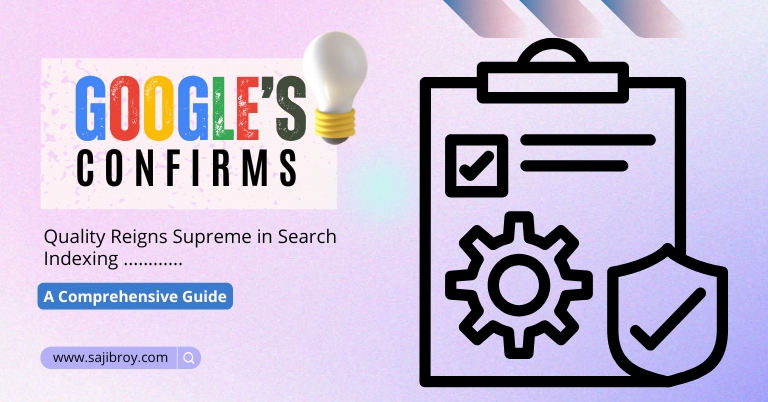To become an IT project manager, you must possess a combination of technical skills and leadership abilities. This requires obtaining a bachelor’s degree in a relevant field, gaining experience in IT project management, and obtaining industry certifications such as PMP or ITIL.
Additionally, developing strong communication, problem-solving, and organizational skills will greatly enhance your chances of becoming a successful IT project manager. Keep reading to learn more about the steps you can take to pursue this career path.
Let's See the Topic Overview
Understanding The Role Of An IT Project Manager
The Importance Of IT Project Managers In Modern Organizations
In today’s digital era, it project managers play a vital role in ensuring the success of technology-driven projects within organizations. These professionals are responsible for overseeing the planning, execution, and delivery of IT projects, ensuring that business objectives are met efficiently and effectively.
Here are some key points to understand the importance of IT project managers:
- Facilitating communication: It project managers act as a bridge between stakeholders, team members, and vendors, ensuring clear and effective communication throughout the project lifecycle. They facilitate collaboration and ensure everyone is aligned towards the project’s objectives.
- Managing risks: IT projects often involve complex technical components and potential risks. Project managers identify and mitigate these risks proactively, ensuring that potential roadblocks are addressed before they become major obstacles.
- Resource allocation: IT project managers are responsible for managing resources such as budget, time, and human capital. They ensure that resources are allocated efficiently, maximizing productivity and minimizing project costs.
- Monitoring project progress: IT project managers closely monitor the progress of a project, ensuring that it stays on track and meets milestones and deadlines. They keep stakeholders informed about the progress and manage expectations effectively.
- Problem-solving: IT projects can encounter various challenges that require quick thinking and problem-solving skills. Project managers are adept at troubleshooting and finding practical solutions to overcome obstacles and keep the project moving forward.
Key Responsibilities And Skills Required For The Role
Being an IT project manager entails a diverse range of responsibilities and requires a specific skill set. Here are the key responsibilities and skills required for the role:
Responsibilities:
- Developing project plans, defining project scope, goals, and deliverables
- Creating and managing a project schedule, ensuring that tasks are completed within deadlines
- Identifying project stakeholders and managing their expectations
- Leading and motivating project teams, providing guidance and support
- Managing project budgets and ensuring cost control
- Conducting risk analysis and developing contingency plans
- Communicating project progress and updates to stakeholders
- Evaluating project outcomes and conducting post-project reviews for continuous improvement
Skills:
- Excellent leadership and management skills
- Strong communication and interpersonal skills
- Proficiency in project management methodologies and tools
- Technical knowledge related to the specific IT domain
- Analytical and problem-solving skills
- Ability to prioritize tasks and manage time effectively
- Adaptability and flexibility in a dynamic work environment
- Negotiation and conflict resolution skills
- Attention to detail and organizational abilities
The Impact Of Effective Project Management On Successful IT Projects
Effective project management has a significant impact on the success of IT projects. Here are some ways in which it contributes to successful project outcomes:

- Clear objectives: Effective project management ensures that project objectives are clearly defined, aligning them with the organization’s strategic goals. This clarity helps in driving the project towards success.
- Improved efficiency: By implementing standardized project management processes, IT projects benefit from increased efficiency in terms of resource allocation, task completion, and overall project execution.
- Minimized risks: Efficient risk management practices mitigate potential risks and proactively address issues before they escalate. This leads to reduced project risks and increased chances of successful delivery.
- Enhanced communication: Effective project management promotes open and transparent communication among project stakeholders. This facilitates better collaboration, minimizes misunderstandings, and fosters a positive working environment.
- Quality deliverables: Project management methodologies emphasize quality control measures, ensuring that it projects meet predefined standards and deliver expected outcomes. This contributes to customer satisfaction and organizational success.
- Stakeholder satisfaction: Through effective stakeholder management and regular communication, project managers keep stakeholders engaged and informed, ensuring their satisfaction with the project’s progress and outcomes.
Understanding the vital role of IT project managers, their key responsibilities, and Required skills is crucial in successfully managing and delivering IT projects. Effective project management practices not only ensure project success but also contribute to organizational growth and prosperity.
Step 1: Acquiring Technical Knowledge And Expertise
Identifying The Essential Technical Skills For IT Project Managers
In order to become an IT project manager, it is crucial to acquire the necessary technical knowledge and expertise. Here are some key points to consider when identifying the essential technical skills for this role:
- Broad understanding of it: IT project managers should have a comprehensive understanding of various IT concepts and technologies. This includes knowledge of programming languages, systems analysis, database management, networking, and cybersecurity.
- Familiarity with project management software: Proficiency in using project management software is vital for effectively managing IT projects. This includes software such as Microsoft Project, Jira, Trello, and Basecamp, among others. It is important to gain hands-on experience with these tools to streamline project planning, tracking, and collaboration.
- Strong analytical and problem-solving skills: IT project managers need to be able to analyze complex technical issues and find solutions. This requires a combination of critical thinking, problem-solving skills, and the ability to leverage technical expertise to overcome obstacles.
- Excellent communication and interpersonal skills: Communication is key for IT project managers who often need to interact with stakeholders, team members, and clients. Strong communication and interpersonal skills facilitate effective coordination, delegation, and negotiation.
- Knowledge of agile methodologies: Agile methodologies, such as Scrum and Kanban, are widely used in IT project management. It is important for IT project managers to possess knowledge of these methodologies to successfully navigate iterative project cycles and adapt to changing requirements.
Gaining Experience In A Relevant IT Field
While acquiring technical knowledge is crucial, gaining experience in a relevant IT field is equally important. Here are some key points to consider when seeking practical experience:
- Internships and entry-level positions: Many aspiring IT project managers begin their careers by securing internships or entry-level positions in IT companies. This provides valuable hands-on experience and exposure to various aspects of IT project management.
- Collaborating on IT projects: Actively participating in IT projects, either within an organization or as part of freelancing or volunteer work, can help in gaining practical experience. This allows individuals to familiarize themselves with real-world project dynamics, challenges, and opportunities.
- Networking and mentorship: Building a network of professionals in the IT industry provides opportunities to learn from experienced individuals. Engaging with mentors can offer insights into the nuances of IT project management and guidance in career advancement.
- Continuous learning and professional development: Staying updated with the latest trends and advancements in the it industry is crucial. Engaging in continuous learning, attending workshops, participating in online courses, and obtaining certifications can enhance one’s practical skills and professional knowledge.
Seeking Professional Certifications To Enhance Technical Expertise
Obtaining professional certifications is an excellent way to enhance technical expertise as an it project manager. Here are some key points to consider when seeking certifications:
- Project management certifications: Acquiring recognized project management certifications, such as the project management professional (PMP) certification, can validate one’s project management skills and demonstrate a commitment to professional growth.
- It-specific certifications: Many certifications focus on specific IT areas, such as cybersecurity, network administration, software development, or cloud computing. Depending on the chosen specialization, certifications like certified information systems security professional (CISSP), CISCO certified network professional (CCNP), or Microsoft-certified Azure solutions architect expert can provide a competitive edge.
- Agile certifications: As agile methodologies gain prominence in it project management, certifications like certified scrum master (csm) or agile certified practitioner (PMI-ACP) can enhance one’s knowledge and skills in agile project management.
- Vendor-specific certifications: Vendors often provide certifications for their products and services. These certifications, such as Microsoft certified solutions expert (MCSE) or Amazon web services certified (AWS), can be valuable in demonstrating expertise in specific technologies.
By focusing on acquiring technical knowledge and expertise, gaining practical experience in a relevant IT field, and seeking professional certifications, aspiring IT project managers can lay a solid foundation for a successful career in this dynamic field.
Step 2: Developing Strong Communication And Leadership Skills
Effective Communication Strategies For IT Project Managers
As an IT project manager, effective communication is key to the success of your projects. You need to be able to convey your ideas, goals, and expectations clearly to both your team members and stakeholders. Here are some strategies to help you improve your communication skills:

- Be a good listener: Listen actively and attentively to what others have to say. This not only helps you understand their perspectives but also makes them feel valued and heard.
- Use clear and concise language: Avoid technical jargon and use language that is easily understandable to all stakeholders. This ensures that everyone is on the same page and minimizes the chances of miscommunication.
- Adapt your communication style: Different people have different communication preferences. Some prefer emails, while others might prefer face-to-face conversations. Adapt your style to meet the needs of your team members and stakeholders.
- Provide regular updates: Keep everyone involved informed about the progress of the project. Regularly communicate milestones, deadlines, and any changes to the scope or timeline.
- Encourage open and honest communication: Create an environment where team members feel comfortable expressing their thoughts and concerns. Emphasize the importance of open and honest communication to foster trust and collaboration.
Building Relationships With Stakeholders And Team Members
Building strong relationships with stakeholders and team members is vital for the smooth functioning of an it project. Good working relationships not only enhance communication but also contribute to a positive work culture. Here’s how you can build meaningful relationships:
- Establish trust: Trust is the foundation of any successful relationship. Be reliable, and transparent, and deliver on your commitments. This helps build trust and credibility with both stakeholders and team members.
- Foster a collaborative environment: Encourage team members to collaborate and work together towards a common goal. Foster an environment where ideas are valued and everyone feels comfortable sharing their thoughts.
- Show appreciation: Recognize and appreciate the efforts of your team members. Celebrate milestones and achievements. Small gestures of appreciation can go a long way in strengthening relationships.
- Be responsive: Respond promptly to emails, messages, and requests from stakeholders and team members. This shows that you value their time and input.
- Address conflicts proactively: Conflicts are inevitable in any project. Address them proactively and take steps to resolve them in a fair and respectful manner. This helps maintain positive relationships and minimizes disruptions.
Developing Leadership Qualities To Motivate And Inspire Teams
As an IT project manager, your leadership qualities play a crucial role in motivating and inspiring your team members to perform at their best. Here are some qualities to focus on developing:
- Lead by example: Set high standards for yourself and demonstrate the qualities you expect from your team members. Be accountable, responsible, and committed to the success of the project.
- Provide clear direction and expectations: Clearly communicate project goals, roles, and responsibilities. Ensure that everyone understands what is expected of them and how their work contributes to the overall success of the project.
- Motivate and inspire: Encourage and inspire your team members to go above and beyond. Acknowledge their accomplishments, provide constructive feedback, and empower them to take ownership of their work.
- Foster a positive work culture: Create a positive and inclusive work environment where team members feel valued, supported, and motivated. Encourage collaboration, creativity, and continuous learning.
- Develop your emotional intelligence: Emotional intelligence is crucial for effective leadership. Develop your ability to understand and manage your emotions, as well as the emotions of others. This helps in building stronger relationships and resolving conflicts.
Developing strong communication and leadership skills is essential for becoming a successful IT project manager. By employing effective communication strategies, building relationships with stakeholders and team members, and developing leadership qualities, you can excel in your role and drive successful project outcomes.
Step 3: Mastering Project Management Methodologies
An Overview Of Popular Project Management Methodologies
Project management methodologies are frameworks that guide IT project managers in planning, executing, and completing projects. Two widely used methodologies are agile and waterfall, each with its own approach and advantages.
Agile methodology:
- Agile is a flexible and iterative approach to project management.
- It emphasizes incremental development and regular feedback loops.
- The agile methodology promotes collaboration and adaptability.
- Agile is particularly effective for projects with evolving requirements or a dynamic environment.
Waterfall methodology:
- Waterfall is a linear project management methodology.
- It follows a sequential approach, with each phase dependent on the previous one.
- The waterfall methodology is well-suited for projects with stable requirements and clear objectives.
- It ensures a structured and predictable project flow.
Understanding The Strengths And Weaknesses Of Each Methodology
Before choosing a project management methodology, it project managers must understand the strengths and weaknesses of each approach.
Agile strengths:
- Allows for flexibility and adaptability to changing project requirements.
- Emphasizes collaboration, reducing silos, and promoting teamwork.
- Provides frequent opportunities for feedback, leading to continuous improvement.
Agile weaknesses:
- May require more time and resources for project management due to frequent iterations.
- Can be challenging to implement in teams or organizations unfamiliar with agile principles.
- Requires active involvement and commitment from stakeholders throughout the project.
Waterfall strengths:
- Provides a clear structure and defined milestones throughout the project lifecycle.
- Ideal for projects with well-defined requirements and limited changes expected.
- Easier to estimate project timelines and costs compared to agile.
Waterfall weaknesses:
- Less adaptable to changes, as any modifications may require going back to previous project phases.
- Limited opportunities for stakeholder involvement and feedback until later stages of the project.
- May not be suitable for projects with evolving requirements or a highly dynamic environment.
Applying The Appropriate Methodology Based On Project Requirements
Choosing the right project management methodology is crucial for successful project execution. To apply the appropriate methodology, IT project managers should consider the following factors:

- Project requirements: Understand the project’s nature, complexity, and goals to determine which methodology aligns best.
- Stakeholder involvement: Analyze the level of involvement and collaboration required from stakeholders throughout the project.
- Flexibility vs. Structure: Assess the project’s ability to accommodate changes and determine if a flexible or more structured approach is needed.
- Resource availability: Consider the resources available, including budget, timeline, and team composition, to determine which methodology is feasible.
- Previous experience: Evaluate the team’s familiarity with project management methodologies and choose one that aligns with their skills and expertise.
By carefully assessing these factors, it project managers can make informed decisions and ensure the chosen methodology supports the project’s success.
Keep in mind that every project is unique, and there might be instances where a hybrid approach combining elements from different methodologies is the most suitable option. Choosing the right methodology lays the foundation for effective project management and sets the project up for success.
Step 4: Building A Solid Foundation In Planning And Organization
Building A Solid Foundation In Planning And Organization
As an it project manager, one of the most crucial skills you should develop is strong planning and organization abilities. This step is essential for successfully leading and executing projects within the specified time frame and budget. By creating detailed project plans and timelines, establishing realistic goals and objectives, and implementing effective project tracking and monitoring systems, you can ensure the smooth progress of your projects.
Let’s dive deeper into these key aspects:
Creating Detailed Project Plans And Timelines
- Develop a comprehensive project plan that outlines all the necessary steps, deliverables, and resources required for successful project completion.
- Break down the project into smaller tasks and assign clear deadlines to each task.
- Consider using project management tools and software to streamline the planning process and enhance collaboration among team members.
- Regularly update and refine the project plan as the project progresses and new information becomes available.
Establishing Realistic Project Goals And Objectives
- Clearly define the project’s goals and objectives, ensuring they are aligned with the overall strategic objectives of the organization.
- Set achievable and measurable goals that are specific, relevant, and time-bound.
- Involve key stakeholders in the goal-setting process to ensure their buy-in and commitment.
- Regularly review and revise goals based on changing circumstances and project requirements.
Implementing Effective Project Tracking And Monitoring Systems
- Set up a robust project tracking system to monitor the progress and performance of the project.
- Establish key performance indicators (KPIs) to measure the project’s success and track them regularly.
- Regularly communicate with team members and stakeholders to identify any potential risks or issues and take appropriate actions to mitigate them.
- Utilize project management software to automate data collection and reporting, making it easier to track project milestones, budget utilization, and resource allocation.
By focusing on these three aspects, creating detailed project plans and timelines, establishing realistic goals and objectives, and implementing effective tracking and monitoring systems, you can build a solid foundation in planning and organization as an it project manager. These skills will not only ensure the successful completion of your projects but also enable efficient resource management, stakeholder satisfaction, and overall project success.
So, take the time to invest in enhancing your planning and organizational abilities, as they are the keys to your success as an it project manager.
Step 5: Managing Risks And Mitigating Issues
Managing risks and mitigating issues is a crucial aspect of being an effective IT project manager. In this step, we will explore the key strategies for identifying potential project risks and developing mitigation strategies, as well as dealing with unexpected issues and challenges during project execution.
Additionally, we will discuss the importance of implementing a proactive approach to risk management.
Identifying Potential Project Risks And Developing Mitigation Strategies
Project risks are uncertainties that can potentially have a negative impact on the project’s objectives. It is essential for an it project manager to identify these risks early on and develop effective mitigation strategies. Here are some key points to consider:
- Conduct a thorough risk assessment: Identify potential risks by analyzing the project scope, timeline, resources, and stakeholder expectations. This assessment will help you anticipate possible challenges and plan ahead.
- Engage the project team: Involve your team members in the risk identification process. They bring different perspectives and expertise, which can help identify risks that may have been overlooked.
- Prioritize risks: Once the risks are identified, prioritize them based on their potential impact and likelihood of occurrence. This will help you allocate resources efficiently and focus on the most critical risks.
- Develop mitigation strategies: For each identified risk, develop a clear and actionable plan to mitigate the impact. This may involve reallocating resources, adjusting timelines, or implementing additional safeguards.
Dealing With Unexpected Issues And Challenges During Project Execution
Despite careful planning, project managers often face unexpected issues and challenges during project execution. It is important to have strategies in place to effectively deal with these situations. Here are some key points to consider:
- Establish open communication channels: Foster an environment of open communication where team members feel comfortable reporting issues and challenges. This will help identify problems early on and enable prompt resolution.
- Problem-solving mindset: Encourage a problem-solving mindset within the project team. This involves analyzing and understanding the root cause of issues, brainstorming possible solutions, and implementing appropriate actions.
- Adaptability and flexibility: Be prepared to adapt and adjust the project plan as needed. Unexpected issues may require modifications to timelines, resource allocation, or project requirements.
- Stakeholder engagement: Keep stakeholders informed about any unexpected issues or challenges and involve them in decision-making processes when necessary. This ensures transparency and enables them to provide valuable input.
Implementing A Proactive Approach To Risk Management
Taking a proactive approach to risk management is crucial for IT project managers. It involves actively identifying, assessing, and mitigating risks throughout the project lifecycle. Here are some key points to consider:
- Continuous risk monitoring: Regularly assess the project’s progress and monitor for any new risks that may arise. This can be done through periodic risk reviews and ongoing communication with the project team.
- Documentation and analysis: Keep thorough documentation of risks, their impact, and the implemented mitigation strategies. This enables you to analyze the effectiveness of mitigation efforts and learn from past experiences.
- Lessons learned: Foster a culture of learning from past projects. Conduct post-project reviews to identify lessons learned and implement improvements in risk management strategies for future projects.
- Stakeholder involvement: Engage stakeholders in risk management activities. Their input and expertise can help identify risks and develop strategies to mitigate them effectively.
By effectively managing risks and mitigating issues, IT project managers can ensure the smooth execution of projects, minimize disruptions, and increase the likelihood of project success.
Step 6: Collaborating And Managing Stakeholder Expectations
Strategies For Effective Collaboration With Stakeholders
Collaborating with stakeholders is a crucial aspect of being an IT project manager. Building strong relationships and effective communication with stakeholders can greatly contribute to the success of a project. Here are some strategies to ensure successful collaboration:
- Establish clear communication channels: Set up regular meetings, create a communication plan, and define the preferred method of communication with each stakeholder. This ensures that everyone is on the same page and there are no misunderstandings.
- Identify stakeholder expectations: Understand what each stakeholder expects from the project. Conduct individual meetings to gather their requirements, goals, and concerns. This helps in aligning project objectives with stakeholder expectations.
- Involve stakeholders from the beginning: Engage stakeholders from the initial stages of the project. Their input can help in shaping the project scope, identifying risks, and making important decisions. This also makes them feel valued and increases their commitment to the project.
- Foster a collaborative culture: Encourage open and transparent communication among stakeholders. Create an environment where everyone feels comfortable expressing their opinions and concerns. Collaboration should be viewed as a collective effort towards a common goal.
- Manage conflicts effectively: Conflicts can arise among stakeholders due to differing opinions or priorities. As an it project manager, it is important to address conflicts promptly and find mutually acceptable resolutions. This helps in maintaining positive relationships and keeping the project on track.
Managing Stakeholder Expectations And Balancing Competing Demands
As an IT project manager, one of your key responsibilities is managing stakeholder expectations and balancing competing demands. Here’s how you can effectively handle this challenge:

- Engage stakeholders in setting realistic expectations: Collaborate with stakeholders to define project goals, deliverables, and timelines. Ensure that expectations are realistic and achievable by considering the available resources and constraints.
- Prioritize stakeholder needs: Identify the most critical stakeholder needs and align project activities accordingly. Prioritizing the requirements of key stakeholders helps in managing their expectations and delivering value to them.
- Set clear boundaries: Clearly communicate the limitations and boundaries of the project. This helps stakeholders understand what can and cannot be achieved within the project scope. Managing expectations upfront prevents misunderstandings later on.
- Regularly communicate progress: Provide regular updates on project progress to stakeholders. This helps in managing their expectations by keeping them informed about the status of deliverables, milestones, and any potential changes in the project plan.
- Manage changes effectively: Changes are inevitable in any project. However, it is important to manage them effectively to prevent scope creep and address competing demands. Implement change control processes to evaluate and prioritize requested changes.
Communicating Project Progress And Outcomes To Stakeholders
Communication plays a pivotal role in project management, especially when it comes to keeping stakeholders informed about project progress and outcomes. Here are some key aspects to consider when communicating with stakeholders:
- Choose the right communication channels: Use communication channels that are preferred by stakeholders and ensure they are accessible to all. This might include regular meetings, progress reports, email updates, or project management tools.
- Tailor communication to stakeholder needs: Each stakeholder may have different information requirements. Understand their preferences and provide them with relevant details accordingly. This ensures that stakeholders receive tailored updates that are meaningful to them.
- Highlight achievements and milestones: Celebrate project successes by highlighting achievements and major milestones in your communications. This not only keeps stakeholders engaged but also demonstrates the progress being made towards project goals.
- Be transparent about challenges: It is important to communicate any challenges or obstacles that arise during the project. This demonstrates transparency and helps stakeholders understand the factors that may impact project timelines or outcomes.
- Provide regular status reports: Develop concise and easy-to-understand status reports that capture project progress, key metrics, and upcoming activities. Regularly share these reports with stakeholders to keep them informed and engaged.
By implementing these strategies, managing stakeholder expectations, and communicating effectively, you can foster strong collaboration and ensure the success of your IT project. Remember, a well-informed and engaged stakeholder group can greatly contribute to project outcomes and overall satisfaction.
Step 7: Continuous Learning And Professional Development
The Importance Of Continuous Learning In The IT Project Management Field
In the ever-evolving world of IT project management, continuous learning, and professional development play a crucial role in staying ahead. As new technologies emerge and methodologies evolve, project managers must strive to expand their knowledge and skills to remain competitive and valuable.
Here are a few key points to consider:
- Stay updated with industry trends and advancements: Technology is constantly evolving, and project managers need to keep up with the latest trends. By staying informed about emerging technologies, you can identify opportunities to leverage them in your projects, ensuring the use of the most efficient and effective solutions.
- Enhance problem-solving skills: Ongoing learning allows project managers to continuously improve their problem-solving capabilities. As you gain new knowledge and approaches, you can bring fresh perspectives to address complex challenges and find innovative solutions.
- Adapt to changing methodologies: Agile, scrum, waterfall – project management methodologies continue to evolve. By engaging in continuous learning, you can familiarize yourself with different methodologies and adapt them to suit your projects’ unique requirements, making you a well-rounded and adaptable project manager.
- Expand your professional network: Continuous learning and professional development opportunities provide avenues for networking with industry peers. By attending conferences, workshops, and webinars, you can connect with like-minded professionals, exchange ideas, and gain valuable insights from experienced project managers.
- Improve career prospects: Investing in continuous learning demonstrates your commitment to professional growth, making you a more attractive candidate for senior project management roles. It enhances your credibility and positions you as a competent and knowledgeable leader in the field.
As an IT project manager, it is imperative to embrace continuous learning and professional development throughout your career. By keeping up with industry trends, expanding your knowledge, and building relationships with peers, you can stay ahead of the curve and excel in your role.
Remember, learning should never stop, as it lays the foundation for success in the ever-evolving it project management landscape.
Frequently Asked Questions
What Are The Key Responsibilities Of An IT Project Manager?
It project manager is responsible for planning, executing, and closing it projects. They oversee project teams, manage budgets and timelines, communicate with stakeholders, and ensure project goals are met. They also handle risk management and problem-solving throughout the project lifecycle.
What Skills Are Required To Become An IT Project Manager?
To become an it project manager, one needs a combination of technical, management, and communication skills. These skills include project management, leadership, problem-solving, time management, and strong communication and interpersonal skills. Additionally, it project managers need a thorough understanding of technology and industry trends.
What Qualifications Are Needed To Become An IT Project Manager?
While there is no specific qualification required, a bachelor’s degree in computer science or a related field is preferred. However, certifications such as project management professional (PMP) or certified ScrumMaster (CSM) can boost your credentials. Relevant work experience in IT project management is also highly valuable for career advancement.
Conclusion
To conclude, becoming an IT project manager requires a combination of technical expertise, leadership skills, and strategic thinking. By following the steps outlined in this blog post, you can set yourself on the path to success in this dynamic field.
Firstly, gaining relevant qualifications and certifications will establish your credibility and demonstrate your commitment to professional development. Secondly, honing your technical skills and staying updated with the latest industry trends is crucial for keeping pace with rapidly evolving technologies. Additionally, cultivating strong communication and interpersonal skills will enable you to effectively collaborate with team members, stakeholders, and clients.
Moreover, developing your leadership abilities and problem-solving acumen will empower you to guide projects to successful completion. Lastly, never underestimate the importance of continuous learning and self-improvement. Embrace opportunities for growth, seek feedback, and stay adaptable in an ever-changing IT landscape.
By incorporating these strategies into your career journey, you can embark on a fulfilling and rewarding path as an IT project manager.



![6-Month Local SEO Plan [Download Your Complete Proposal Template]](https://www.sajibroy.com/wp-content/uploads/2025/01/6-Month-Local-SEO-Plan-Download-Your-Complete-Proposal-Template.jpg)








